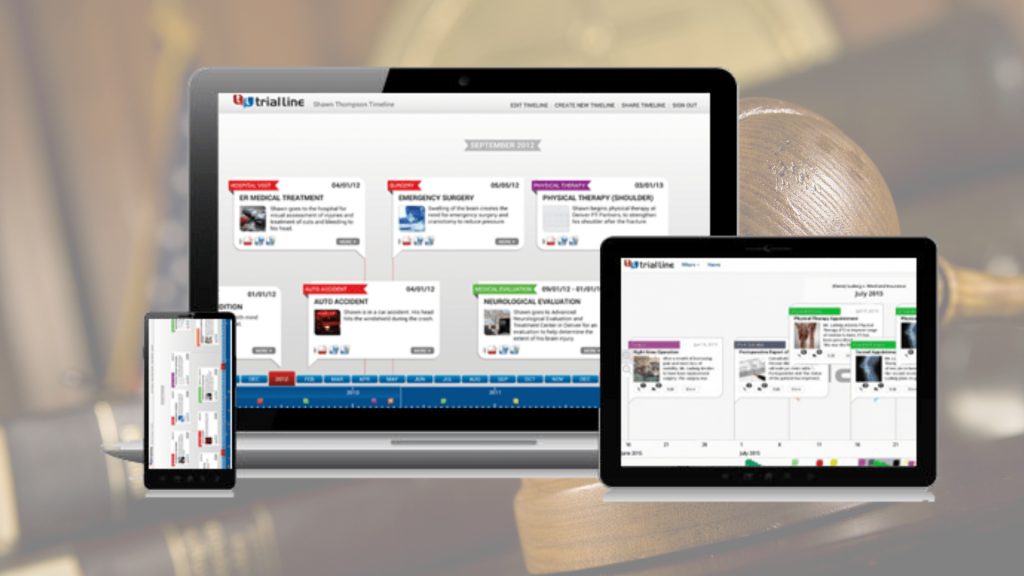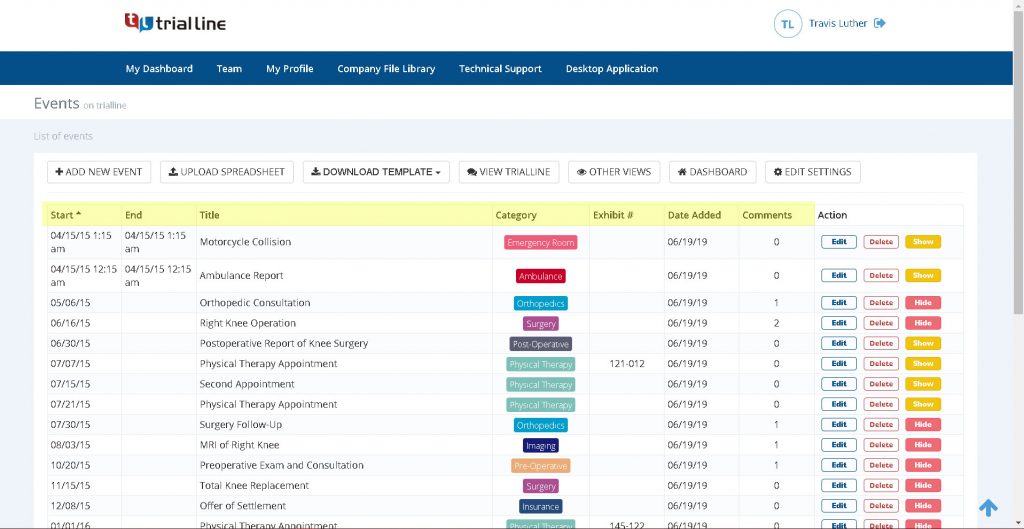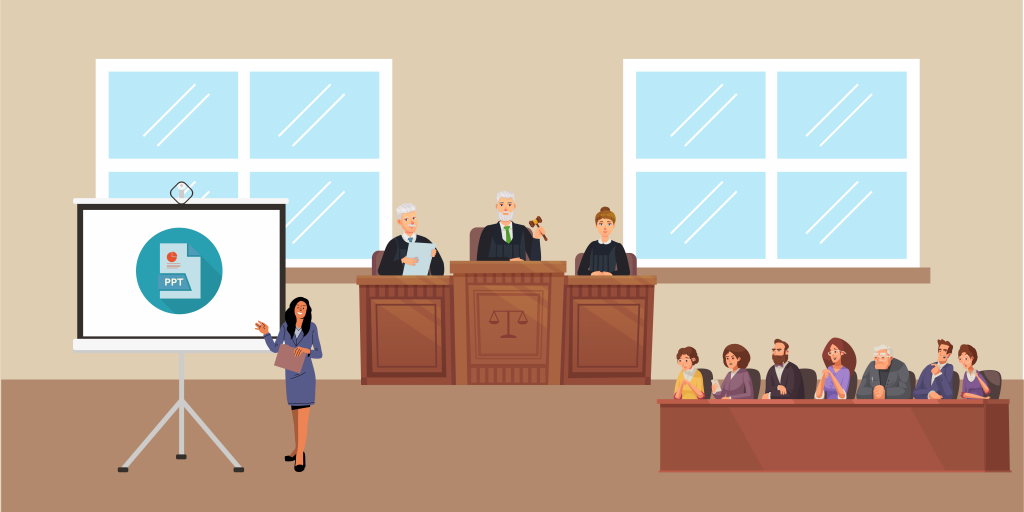Arranging the factual particulars of a legal case within an orderly and easily navigable framework comprises legal case chronologies. This method proves remarkably advantageous for lawyers when they present their cases in a courtroom environment or engage in discussions within the legal arena.
It simplifies the process of gathering comprehensive information by emphasizing facts under contention and those requiring corroborative evidence to meet court admissibility standards. Carefully crafted chronologies foster effective communication among trial participants, a decisive factor in achieving a favorable case outcome.
Legal professionals, including attorneys and litigators, inherently construct a chronology for every case they undertake. However, these chronologies manifest in legal documents, briefs, annotations, discovery responses, and even personal recollections. While organizing these materials may suffice for the straightforward case following a simple sequence, challenges arise when dealing with more intricate scenarios. The ability to retain information and structure workspaces weighed down by fragmented data, documents, notes, and specifics can overwhelm these professionals. This challenge becomes even more pronounced when they must manage multiple cases simultaneously. To prevent lawyers and litigators from becoming entirely immersed in a pile of documents, case chronology software was developed.
For instance, TrialLine stands as a user-friendly legal timeline software that facilitates the creation of well-structured event sequences, seamlessly integrating all aspects of an attorney’s case. TrialLine empowers lawyers to arrange and preview documents, swiftly modify facts, and apply filters based on contacts, concerns, and specific timeframes. This ensures easy sharing of pertinent information in court proceedings or among team members.
Understanding Legal Case Chronologies
A chronology trial or legal case is a systematic arrangement of the sequential order of events, facts, and advancements relevant to the case. It involves the structural arrangement of crucial incidents, actions, dates, and evidence in a logical, time-oriented format. This chronological framework functions as an exhaustive timeline, illustrating the evolution of the case from its commencement to its existing state.
Legal case chronologies equip legal experts with the capacity to steer through the intricacies of a case. This entails the ability to present a strong legal argument, anticipate opposing arguments, and ultimately achieve a favorable outcome in the case.
Core Concepts of Case Chronologies for Court Case

A compelling narrative relies on a delicate balance of educated guesses and evidence. Without evidence, a story lacks credibility, and if it consists of solely evidence without a cohesive framework, it fails to engage. Hence, marrying both elements is imperative to construct a plausible scenario. This is precisely the role that a case chronology fulfills.
However, to synthesize events, facts, and fragments of evidence contained within case chronologies into a seamless and purposeful storyline, the inclusion of core concepts becomes paramount. These concepts serve as the bedrock upon which legal professionals and stakeholders navigate the intricate details of a case.
Case Information
Case name and number: The official title and unique identifier assigned by the court.
Jurisdiction: The specific court or authority overseeing the case.
Parties involved: Names and roles (plaintiff, defendant, etc.) of entities participating.
Key Dates
Filling Date: The date when the case was officially initiated.
Service Date: The date when parties were notified about the dates.
Trial Date: The scheduled commence date of the trial.
Verdict Date: The date when the final judgment or decision is rendered.
Procedural Steps
Pretrial Proceedings: Actions and events leading up to the trial, including motions, discovery, and settlement discussions.
Trial Proceedings: The trials’ distinct phases, encompass opening statements, evidence presentation, witness examination, and closing arguments.
Post-Trial Proceedings: Activities following the trial, such as appeals, post-trial motions, and judgment enforcement.
Motions and orders
Motions filed: A comprehensive list of motions submitted by parties, including motions types and filing dates.
Orders issued: Court orders issued in response to motions, accompanied by dates and concise explanations.
Evidence and Witnesses
Evidence introduced: Significant pieces of evidence were presented during the trial, accompanied by brief discussions.
Witnesses: The identities and roles of individuals testifying during the trial
Settlement Attempts
Mediation or Arbitration: Dates and outcomes of alternative dispute resolution efforts.
Settlement Negotiation: Dates and details of negotiations aimed at reaching an agreement between parties.
Appeals and Post-Trial Actions
Notice of Appeal: Date when an appeal is officially lodged if applicable.
Appellate Proceedings: Notable dates in the appellate process, such as brief fillings and oral arguments.
Appellate Decision: Date and outcome of the appellate court’s ruling/
Case conclusion
Final Judgment: The ultimate decision or ruling reached in the case.
Enforcement: Dates and actions taken to implement the judgment if required.
Embracing these core concepts empowers legal professionals to craft comprehensive and logically structured case chronologies that provide an all-encompassing insight into the evolution of a court case. They can create insightful timelines that seamlessly incorporate each of these concepts by using reputable legal timeline software, such as TrialLine. TrialLine offers essential functionalities, allowing users to meticulously input events, actions, and milestones in the precise sequence they occurred. It features a dedicated section to input crucial case details like names, dates, jurisdiction, and involved parties. Further, the software includes a not function enabling the addition of reminders, or supplementary details to avoid oversight. Notable files can be effortlessly uploaded to each event on the timeline to facilitate the attachment of evidence materials by legal experts. TrialLine further serves as an efficient trial presentation software, granting users the flexibility to personalize which segment of the timeline is displayed during specific case events.
Creating a Comprehensive Case Chronology with TrialLine

TrialLine is a cloud-based trial timeline software designed for firms and attorneys seeking comprehensive case understanding. It caters to those aiming for profound insights into their cases, offering functionalities that span mediation, trial presentation, and storytelling. It allows users to tailor their legal timelines to suit their requirements, effectively conveying pivotal case details in a compelling manner. These timelines are then displayed in a straightforward, event-by-event format, ensuring clarity and comprehension.
Users may also integrate pertinent documents by directly attaching them to corresponding timeline events. This feature accommodates various file formats and simplifies the uploading process.
TrialLine, timeline software for lawyers, promotes efficient teamwork within a legal organization. It simplifies the sharing of case events and related documents among team members, experts, juries, opposing lawyers, and other attorneys, enhancing organization and communication.
Craft Case Timeline Expertly: Schedule a Demo with Our Experts at TrialLine
A legal case chronology offers a structured view of a case’s development, aiding legal professionals, judges, and stakeholders in comprehending event sequences. Yet, it goes beyond this, functioning as a strategic tool for building strong legal arguments and creating compelling narratives.
Jumping into TrialLine might feel a bit like tackling a learning curve, but no worries! Take a proactive step by scheduling a demo with our seasoned experts. They’ll help you unravel TrialLine’s fundamental features, smoothly navigate its interface, and even address any potential challenges. With our legal timeline software in your arsenal, you’ll be armed and ready to champion your next case with confidence!
If you’re enthusiastic about upgrading your case management, dive into TrialLine. Explore the intricacies of our legal timeline software and its array of features. Take advantage of our 14-day free trial to experience firsthand the capabilities of Trial Line. Sign up now!
Disclaimer: The information provided on this website does not, and is not intended to, constitute legal advice; instead, all information, content, and materials available on this site are for general informational purposes only. Information on this website may not constitute the most up-to-date legal or other information.






